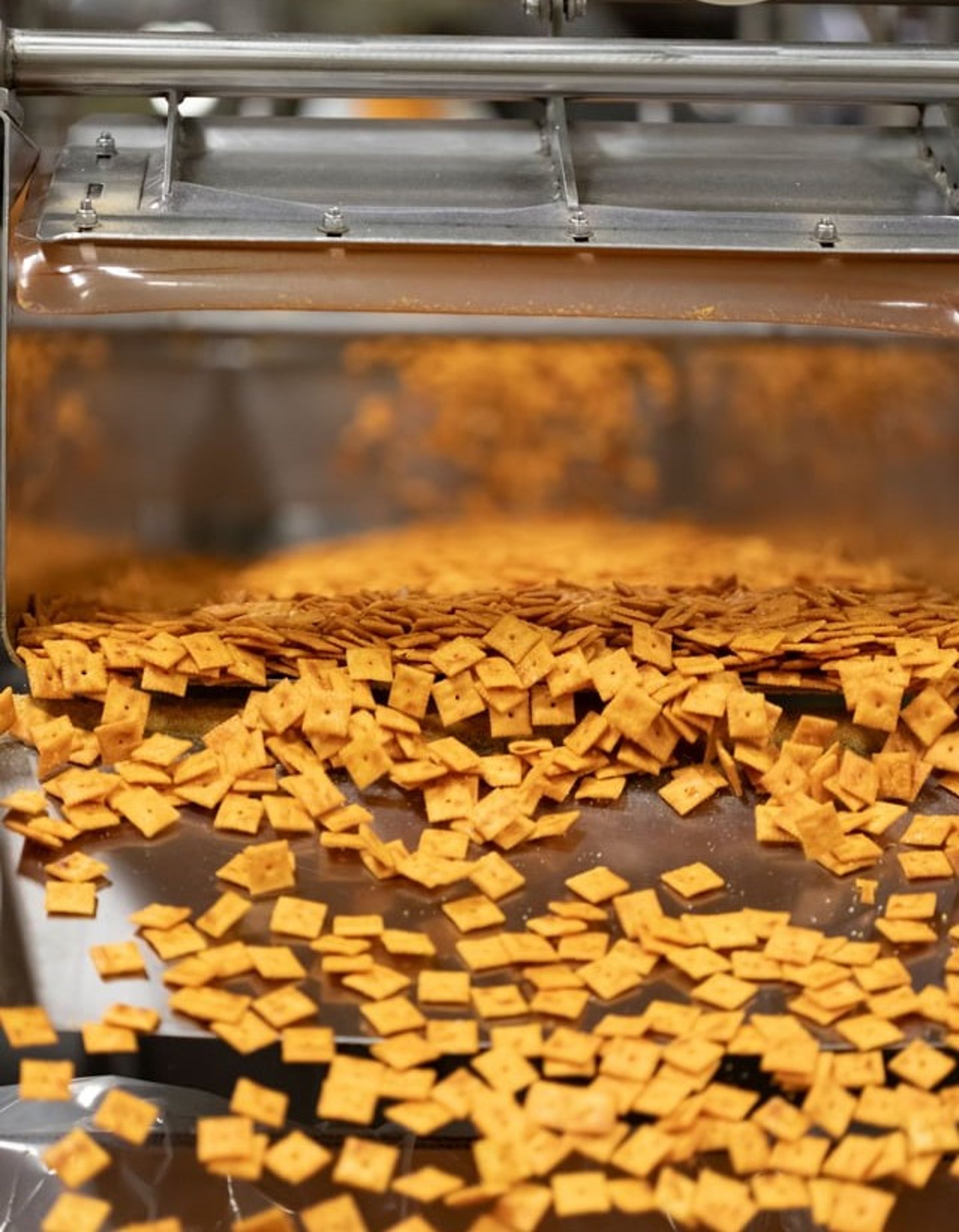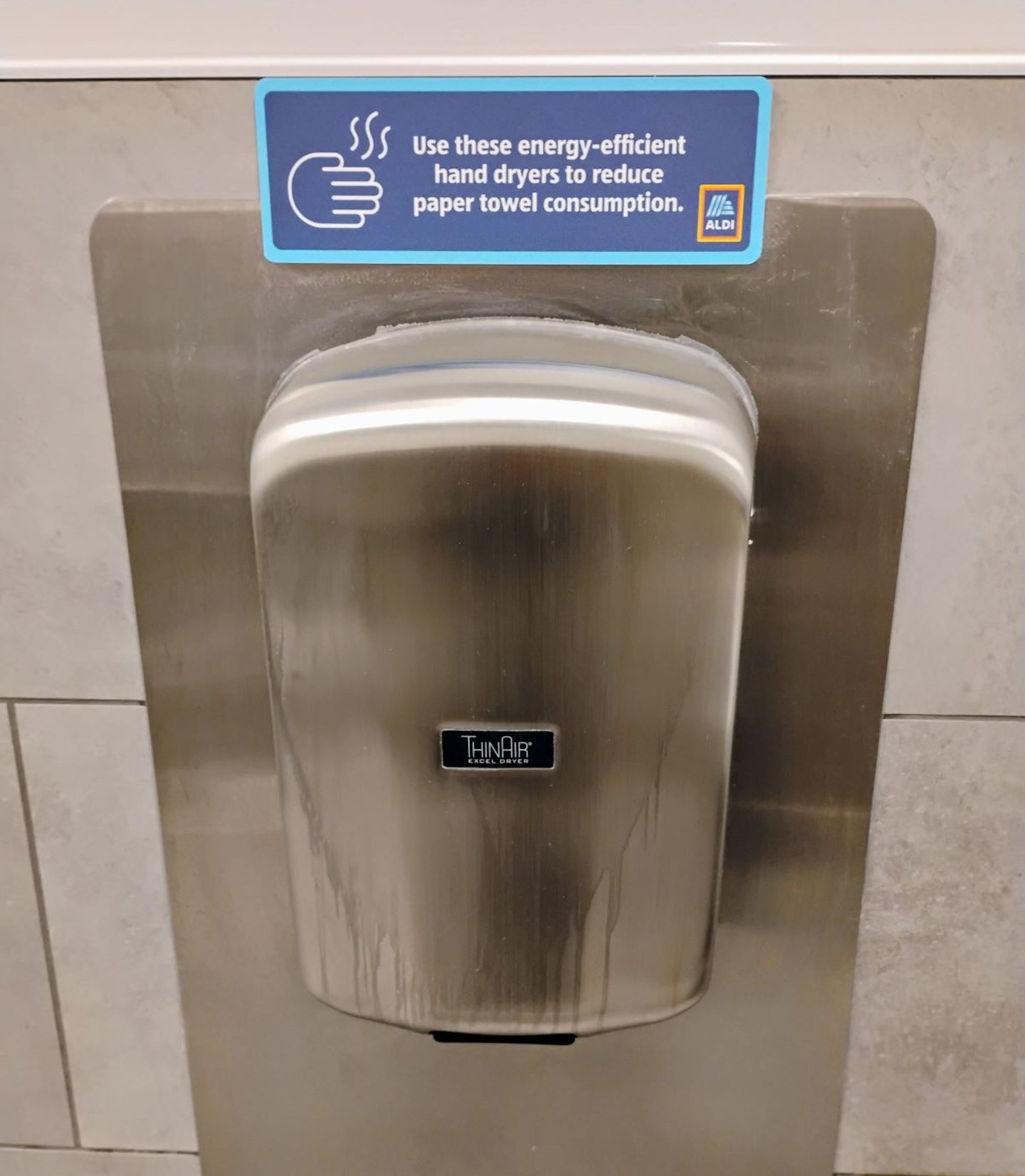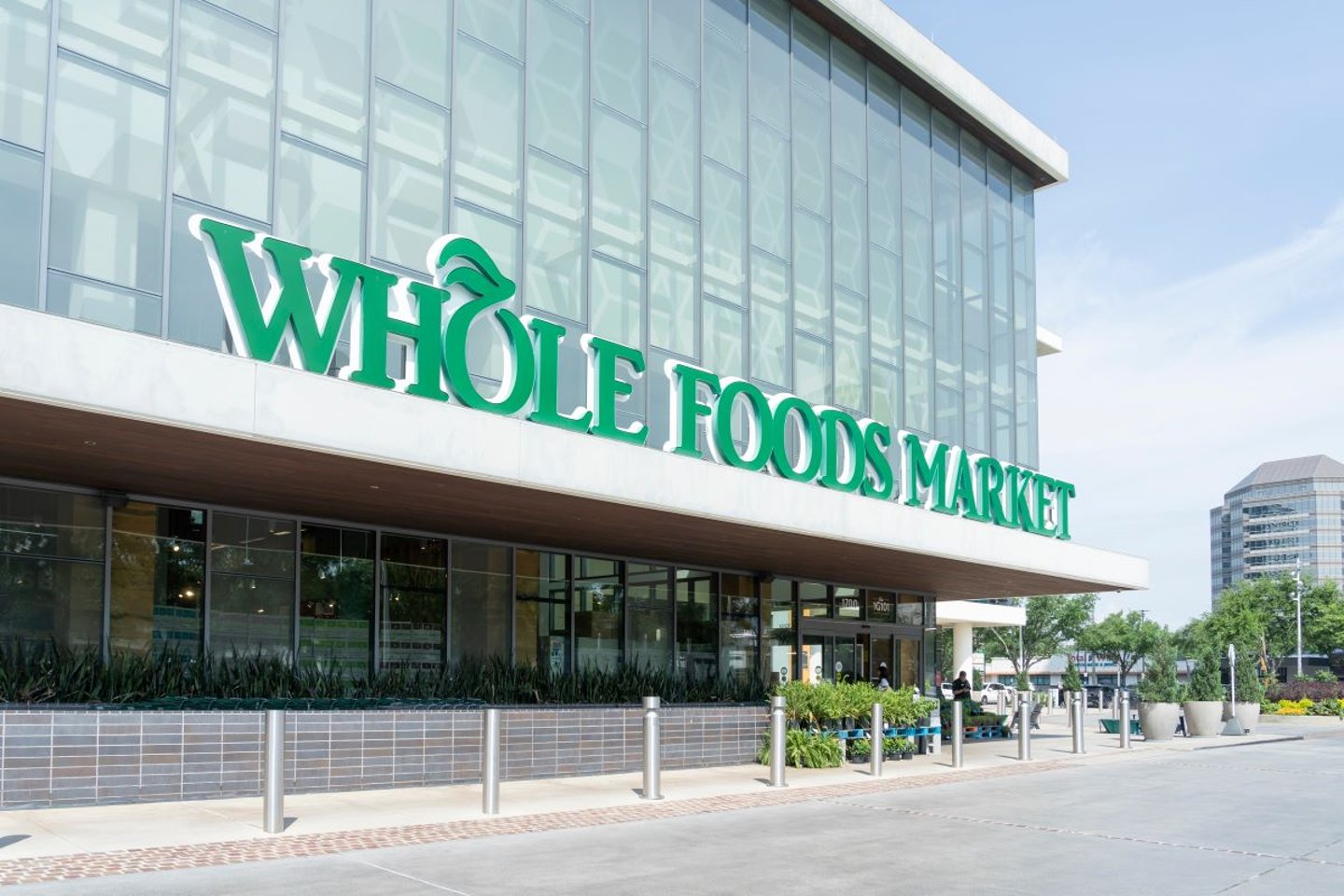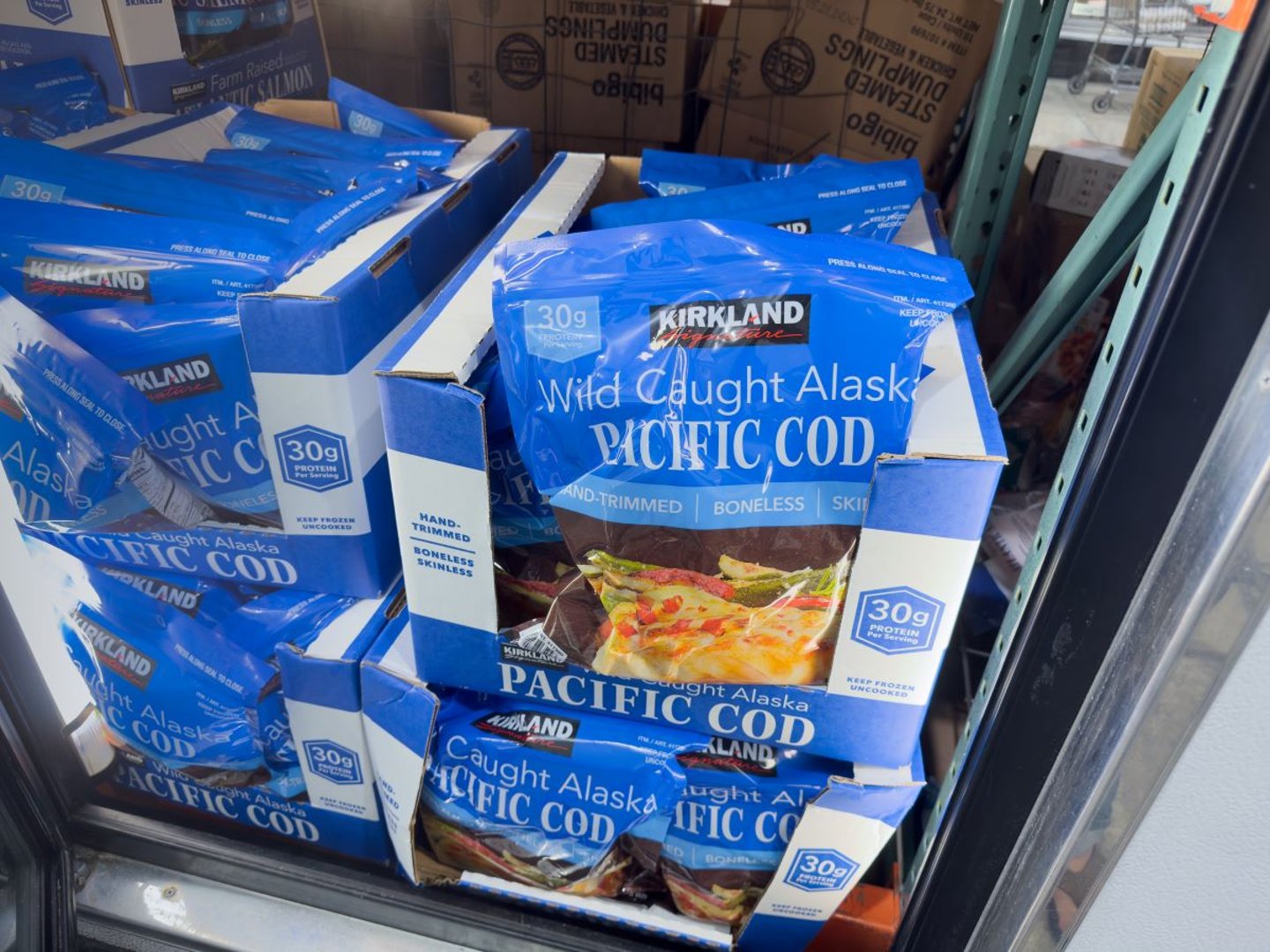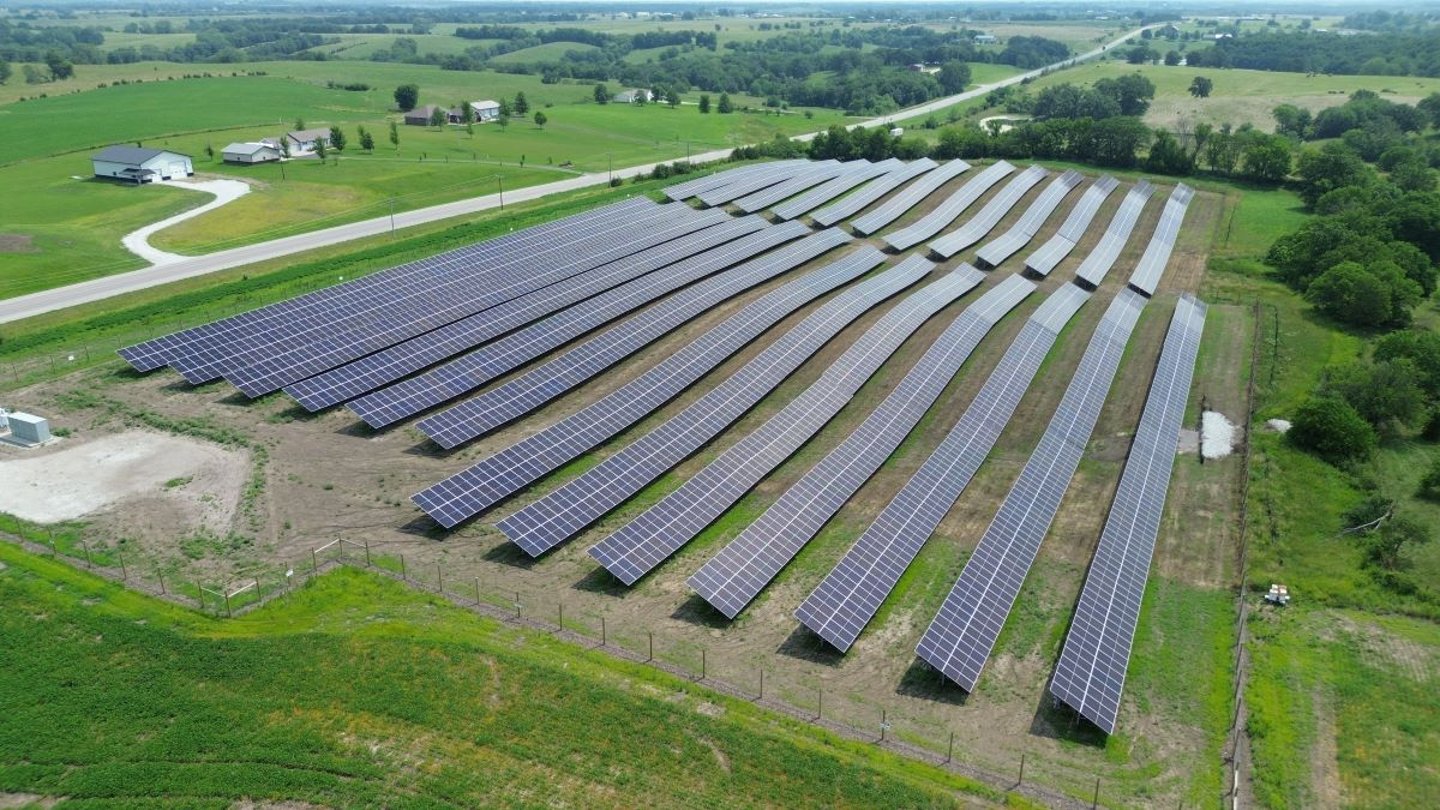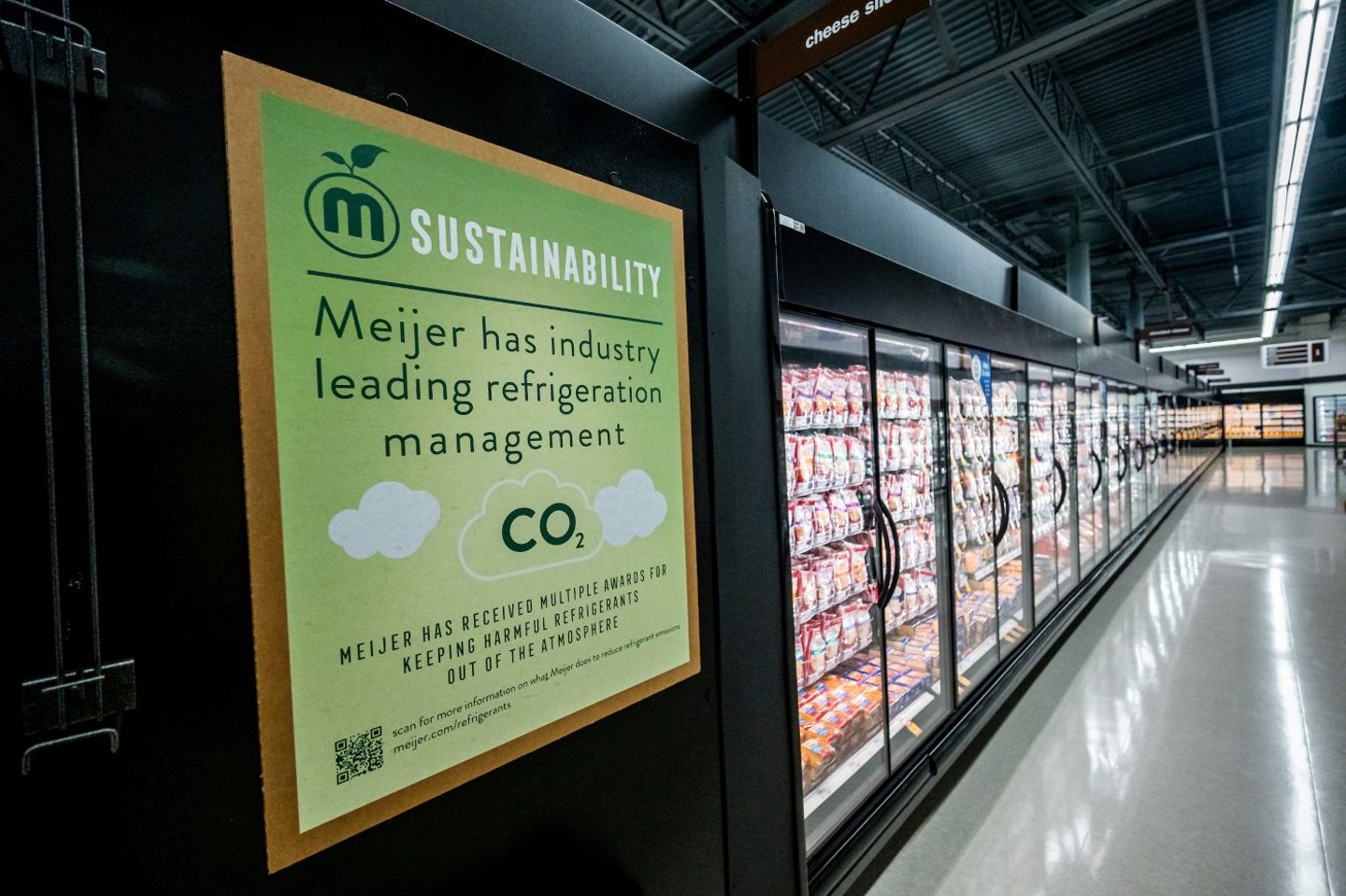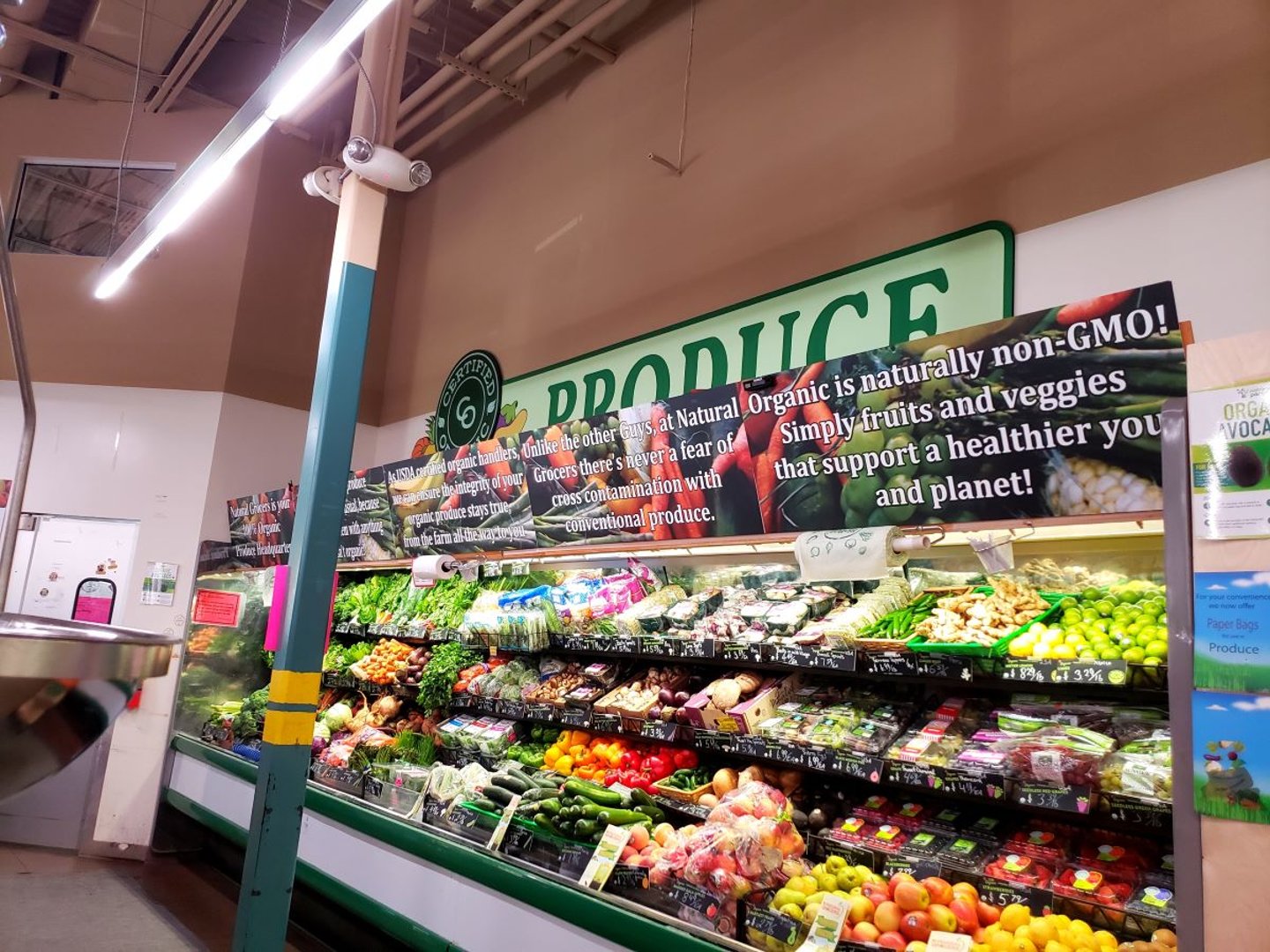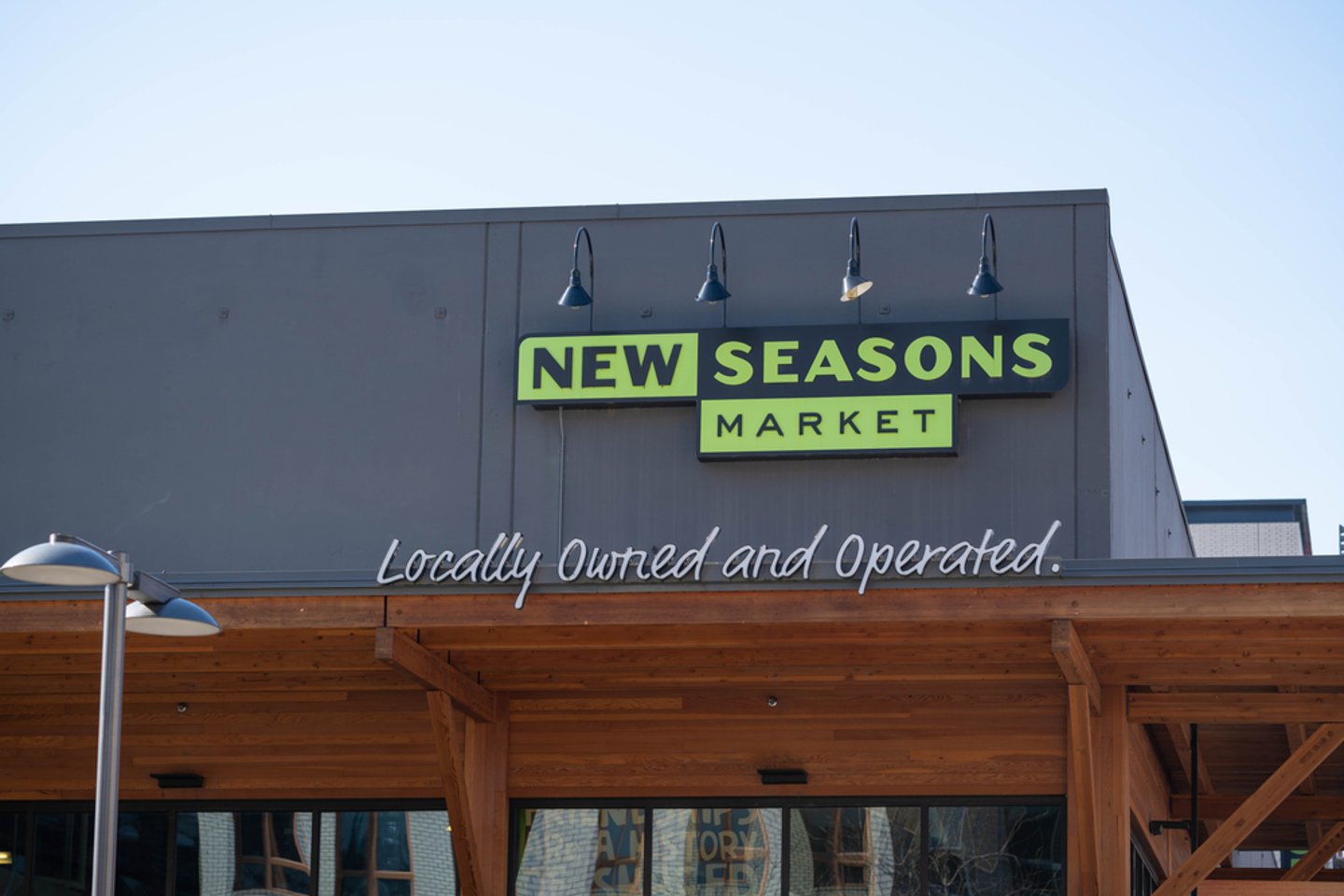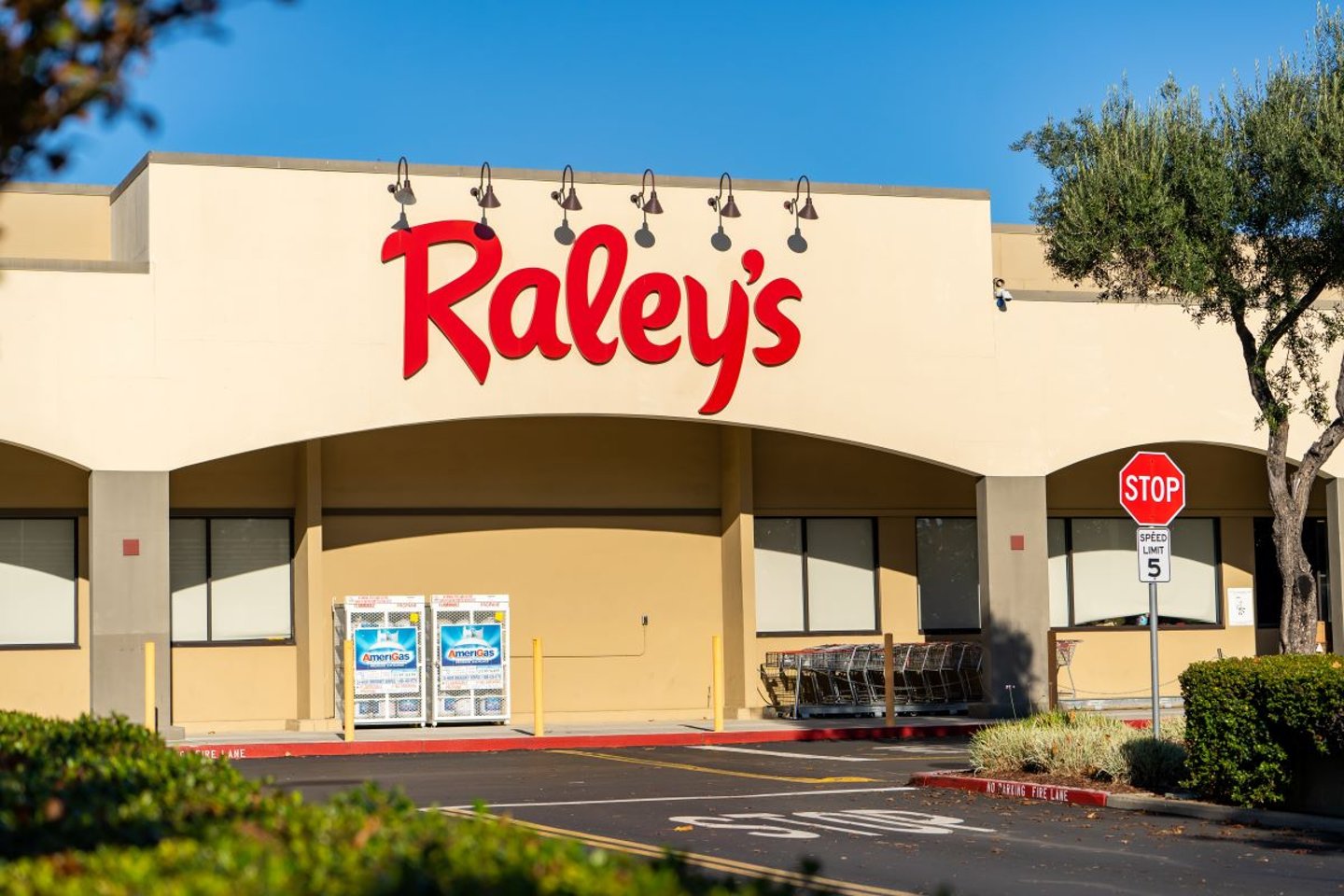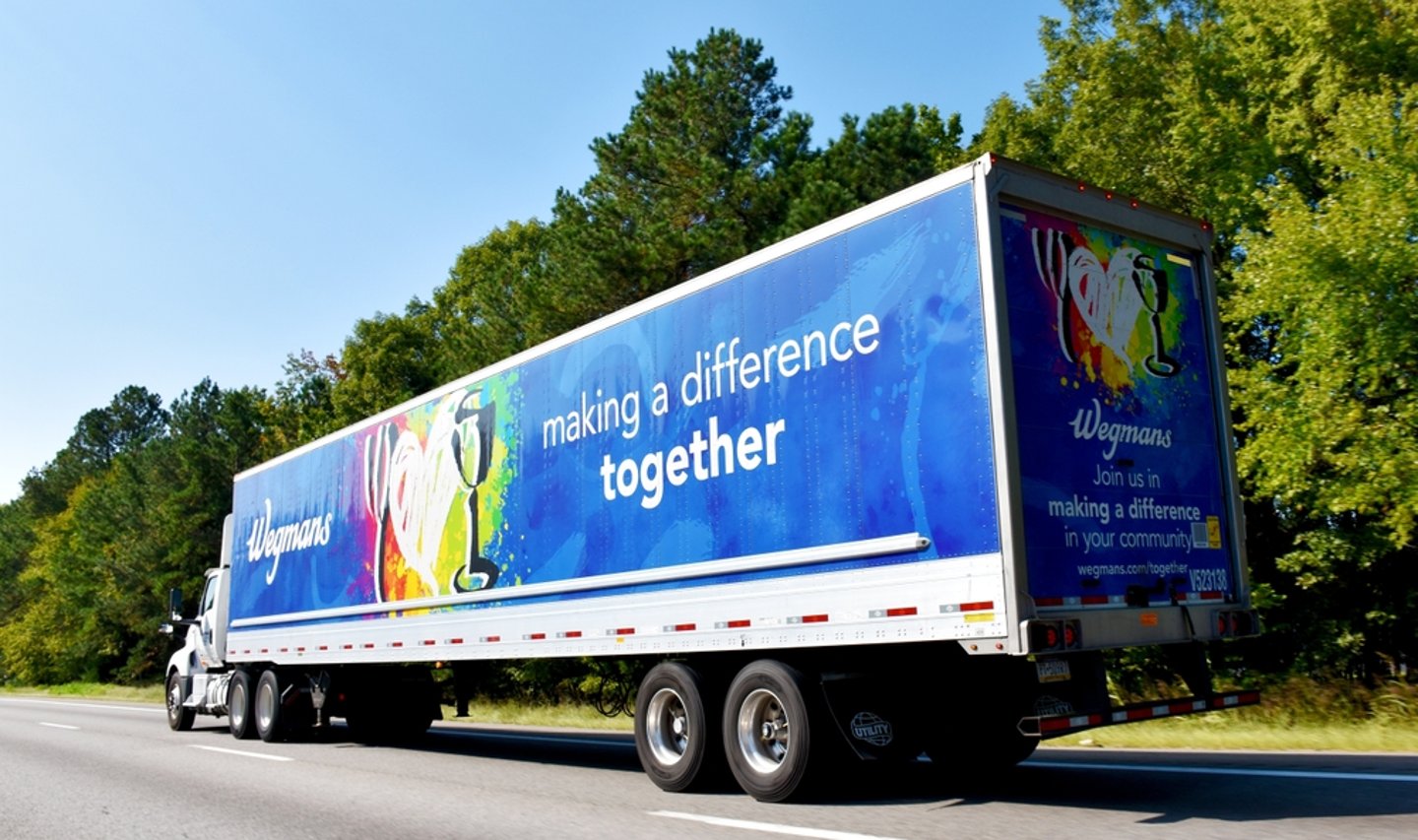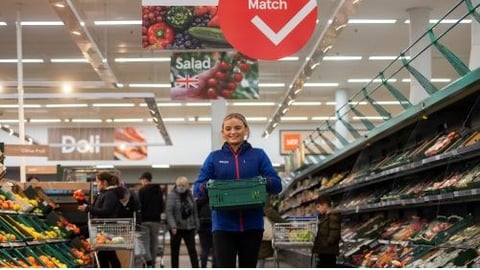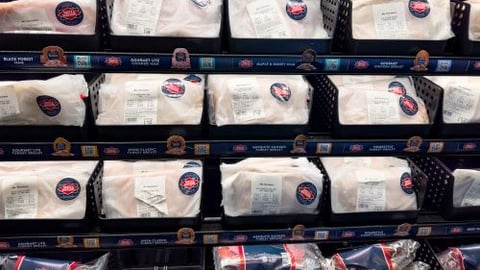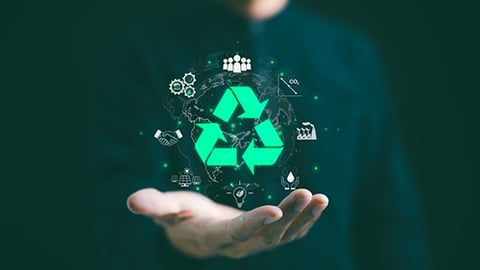10 Most Sustainable Grocers of 2025
More Information
Dedicated readers of Progressive Grocer may well ask how we go about choosing the grocery retailers that make up this list. The answer, simply put, is that we select the companies that impress us the most through the sheer breadth, depth and innovation of their sustainability measures.
Of course, we know that the meaning of the word “sustainability” goes well beyond eco-friendly moves that help the planet, so we have also included the chosen companies’ efforts to improve and maintain the health and well-being of their associates and surrounding communities – therefore fulfilling the definition laid out in the charter for the UCLA Sustainability Committee: “the integration of environmental health, social equity and economic vitality in order to create thriving, healthy, diverse and resilient communities for this generation and generations to come. The practice of sustainability recognizes how these issues are interconnected and requires a systems approach and an acknowledgement of complexity.”
Naturally, given their focus on food and their deep involvement in the communities they serve, grocery companies are ideally suited to adopt sustainability as a core value, but that impetus also comes from the consumers who already shop at their stores, as well as those that they hope to attract. According to a 2024 survey from Mintel, almost two in five engaged beauty and personal care, household, and food and drink consumers said that that companies can do more than governments in driving global change, and more than half of engaged beauty and personal care and household shoppers regularly check product labels for information such as recyclability, while more than a third of engaged food and drink consumers check on-pack labels for details on the environmental initiatives supported by purchasing the product.
With rising consumer expectations that companies – grocery retailers in particular – will walk the talk when it comes to all aspects of sustainability, those a little further behind on the journey can find worthy role models below (in alphabetical order).
1. Ahold Delhaize USA
This past year was a busy one for Ahold Delhaize USA as it continued with its wide-ranging initiatives in this space. Several of these endeavors were impactful collaborations with large and influential CPG companies to reduce scope 3 greenhouse-gas emissions.
Last year, the grocer teamed with global snacking company Kellanova and North American agribusiness Bartlett on a pilot program supporting regenerative agricultural practices among North Carolina wheat farmers, with the wheat harvested and milled from these farms used in combination with conventionally grown wheat to manufacture Kellanova’s Cheez-It and Club crackers sold at Ahold Delhaize USA banners.
Additionally, Ahold Delhaize USA and CPG powerhouse General Mills are making investments in priority supply sheds – geographic growing regions from which key ingredients are sourced – to enable farmers to adopt regenerative farming practices. By the end of this year, the program is expected to further regenerative agriculture management on more than 70,000 acres of farmland in Kansas and the Canadian province of Saskatchewan – the approximate number of acres that General Mills engages to source such major ingredients as wheat and oats for its products sold at Ahold Delhaize USA stores.
And just this past December, the grocer embarked on a program, in collaboration with The Campbell’s Co., to help partner potato farms in North Carolina, New York and Michigan employ regenerative farming techniques. The initiative covers 1,000 acres at these farms, about the number of acres needed annually to grow potatoes for Campbell’s products sold by Ahold Delhaize USA brands. The potatoes harvested during the project will be combined with conventionally grown potatoes to make Kettle Brand chips, Cape Cod chips and Campbell’s soups, all of which will be available at Ahold Delhaize USA local brand locations.
Meanwhile, in 2024, parent company Ahold Delhaize, from which Ahold Delhaize USA takes its sustainability cues, reduced greenhouse-gas emissions in its own operations by 36% compared with the 2018 baseline.
2. ALDI US
ALDI’s longstanding commitments to sustainability are obvious to any customer visiting one of the company’s stores and in need of a shopping cart. Shoppers need to have a quarter to unlock a cart from the cart corral – one way that the retailer cuts down on lost or damaged carts, reducing the demand for resources used in cart production and maintenance.
Once inside the store, shoppers quickly discover that the use of plastic is limited, but the use of 100% renewable energy is pervasive. ALDI doesn’t offer shoppers single-use plastic bags. Instead, the company focuses on recyclability and the reduction of packaging material, incorporating post-consumer recycled content in plastic packaging and fiber sourcing for many products.
On the energy front, ALDI is aiming to reduce overall operational emissions by more than 25% by this year as part of its 2030 sustainability vision. To achieve this, ALDI US has integrated solar designs into stores and warehouses and implemented 100% renewable energy for all operations. This approach combines on-site solar generation, competitive retail supply contracts and the purchase of renewable-energy certificates.
ALDI has also committed to transitioning all U.S. stores to natural refrigerants by 2035. More than 700 ALDI stores have already implemented eco-friendly refrigerants, resulting in a nearly 60% reduction in potential carbon emissions annually. Additionally, ALDI has made significant strides in minimizing food waste, diverting 76% of operational waste from landfills in 2023. This achievement underscores the company’s dedication to sustainable practices and reducing its environmental footprint. Through all of these initiatives and more, ALDI is taking action to make progress against the following 2025 sustainability goals:
- Reduce scope 1 and 2 emissions by 4% compared with the 2021 baseline
- Install only natural refrigeration systems in new and remodeled stores
- Reduce ALDI-exclusive primary packaging materials by 15% by the end of 2025
- Certify 100% of private label coffee as responsibly sourced by the end of 2025
3. Amazon/Whole Foods Market
This past October, Amazon CEO Andy Jassy walked onto a stage at the world’s largest climate event – Climate Week NYC – and outlined the company’s five sustainability priorities: innovating to improve Amazon’s fulfillment center operations, leading to fewer miles driven; embedding sustainability initiatives into Amazon’s business; balancing Amazon’s customer obsession with sustainability; enabling innovation for sustainability through the use of generative AI; and encouraging other companies to help decarbonize their businesses.
The company took a big step toward satisfying several of those goals when it revealed in March its first foray into selling carbon credits to suppliers, business customers and other companies that can be used to offset their climate-damaging carbon emissions.
“We’re using our size and high vetting standards to help promote additional investments in nature, and we are excited to share this new opportunity with companies who are also committed to the difficult work of decarbonizing their operations,” said Kara Hurst, chief sustainability officer at Amazon.
The company has committed to achieve net-zero carbon emissions by 2040, a decade ahead of the Paris Agreement.
Meanwhile, Amazon’s Whole Foods Market business has been a trailblazer in sustainable retail since its founding in 1980. It became the first U.S. grocer to eliminate plastic grocery bags at checkout, in 2008, and plastic straws, in 2019. The company has also installed electric-vehicle charging stations at its stores and harnessed solar energy, with nearly 70 stores supplementing traditional energy supply with rooftop solar installations as of 2022.
In January, Whole Foods launched a new Seafood Code of Conduct to enhance human rights and social responsibility within its supply chain. This policy strengthens protections for fishers and vessel crews, setting higher standards for ethical labor practices and supply chain transparency.
Through these initiatives, Amazon and Whole Foods demonstrate a comprehensive approach to sustainability, addressing environmental impact, ethical sourcing and community well-being.
4. Costco Wholesale Corp.
Costco Wholesale Corp.’s sustainability goals revolve around the pillars of operations, people and communities, and merchandising.
The club operator continues to tackle its Climate Action Plan, working toward scope 1, 2 and 3 greenhouse-gas emission goals. Highlights include launching the Scope 3 “STEP” (Supplier Targets, Transition Agriculture, Energy Solutions and Packaging Solutions) program with its buying teams and increasing the percentage of clean energy powering global operations to 21% of global purchased electricity.
Then there’s Costco’s STAR (Sustainability Technical Assistance Review) program, which aims to minimize water, waste, energy and emissions in warehouses. The retailer introduced Energy STAR benchmarking to help warehouse locations compare against similar buildings and learn about potential energy-saving opportunities.
Costco replaced more than 7 million gallons of diesel with renewable diesel in its California depot and business center fleets. The retailer installed 13 additional CO2-based refrigeration systems and expanded on-site generation capabilities at the Mira Loma, Calif., facility.
The company also focuses on taking care of people and the communities in which it operates. Notable accomplishments include expanding its Workforce Dashboard beyond the United States to help operators better understand and invest in their workforces, bringing the Supervisor in Training program to Canada, and donating $84 million-plus to local charities and more than 177 million meals in fiscal 2024.
Additionally, Costco is broadening its attempts to carry more sustainable merchandise by engaging suppliers directly to encourage target setting, piloting regenerative agriculture investments with partners, and teaming up with organizations such as the Seafood Task Force and the Equitable Food Institute.
Further, it supports minority-owned suppliers through supplier inclusion efforts. Along these same lines, Costco took a stance against pressure to eliminate its diversity, equity and inclusion (DEI) policies. The retailer believes that its current DEI efforts actually enhance the company’s capacity to attract and retain employees who will inevitably help its business succeed.
5. Hy-Vee Inc.
Hy-Vee breaks down its definition of sustainability into different buckets: store construction and design; product sourcing, products and packaging; waste reduction and recycling; and energy and resource conservation. Those buckets are filling up fast with major programs and results from the Midwestern regional grocer.
On the energy and resource conservation front, Hy-Vee and partner Alliant Energy completed the Hy-Vee Chariton Solar Field in summer 2024, a project that will generate enough energy to power 360 homes a year. Adding to the sustainability of that space, Hy-Vee invested in an on-site apiary to study how the presence of various native plants helps sustain bee colonies. Hy-Vee and Alliant Energy are also working together on a pilot program involving a fleet of 30 electric refrigerated trailers that deliver perishable items to Hy-Vee stores in Iowa.
In the second area of store construction and design, Hy-Vee incorporates sustainable features in existing and new stores as it widens its footprint in the central part of the country. A newer store in Grimes, Iowa, for example, includes eco-friendlier insulation, glazing and roofing; daylight-sensing dimmers; and EV-charging stations.
What shoppers buy in their local stores is also important to Hy-Vee as it focuses on product sourcing and packaging as part of its sustainability commitment. From sourcing 100% of fresh and frozen seafood from environmentally responsible sources, to making a concerted effort to reduce single-use plastics, to providing recyclable containers for to-go foods, Hy-Vee regularly assesses its assortment.
That relates to efforts in waste reduction and recycling. Hy-Vee estimates that its stores divert up to 20 million pounds of food waste each year, and its distribution centers are TRUE Zero Waste certified.
In the bigger bucket of corporate responsibility, Hy-Vee continues initiatives to combat food insecurity. Recently, the employee-owned grocer revealed that it had achieved its goal of providing 100 million meals to Feeding America and 19 partner food banks.
6. Meijer Inc.
For Meijer, the seeds of change in sustainability begin with, well, seeds. One of the pioneering supercenter retailer’s latest sustainability projects is a seed donation program that has expanded across its six-state footprint.
This year, organic seeds from Meijer will be used by a nonprofit partner in Garden-to-Go kits that encourage people to cultivate their own produce from home. The kits will be distributed to several communities in the retailer’s home state of Michigan.
In addition to helping others connect with the natural world, privately owned, family-operated Meijer has shown a steady dedication to improving it. In 2024, the company widened its efforts to clean up local waterways and beaches by donating $250,000 to the Council of the Great Lakes Region (CGLR) Foundation in support of capture and cleanup technologies deployed at beachfronts in Milwaukee.
Leaving a lighter footprint on the earth is another priority for Meijer. To keep products out of landfills, the company is continuing its partnership with food waste app Flashfood and launched a baby gear recycling event last fall to help customers get rid of unneeded, expired or damaged baby items, including car seats and strollers.
Meijer is making strides in reducing its carbon emissions and optimizing energy use, too. For the fourth year in a row, the business was recognized by U.S. Environmental Protection Agency’s GreenChill Program for having the lowest corporate-wide refrigerant emissions rate out of all GreenChill partners nationwide over the past year. In addition, the company revealed in September that it had exceeded its 2025 goal of cutting carbon emissions by 50% one year ahead of schedule, citing renewable-energy investments, energy-efficiency prioritization and refrigerant management.
Meijer President and CEO Rick Keyes reiterated the retailer’s emphasis on being a good neighbor. “Together, we are not only driving positive change within the company, but we’re also setting an example for the industry, reinforcing that sustainable practices and business success go hand in hand,” he said.
7. Natural Grocers by Vitamin Cottage
As the United States’ largest family-operated organic and natural grocery retailer, Natural Grocers by Vitamin Cottage works to live up to its Five Founding Principles, which are Nutrition Education, Quality, Always Affordable Pricing, Community and Crew. According to the company, its record financial performance in fiscal year 2024 underscores its belief that a more sustainable and affordable food system is not only possible, but also essential.
In its “2024 Sustainability Report,” the company shared stories of vendors, farmers and partnerships that reflect its commitment to human health, animal welfare and the planet. Spotlighted initiatives include maintaining rigorous product standards across all categories, especially upholding its stance against artificial flavors, preservatives, sweeteners, synthetic colors, and partially or fully hydrogenated oils.
Natural Grocers also teamed with Rodale Institute to advance regenerative organic agriculture and raised more than $80,000 during Organic Month (September) to support that organization’s Farmer Training and Veteran Farmer Training Programs. Additionally, Natural Grocers invested more than $7 million in free nutrition education services provided by its nutritional health coaches to its customers, good4u Crew and communities.
During fiscal year 2024, Natural Grocers also installed a CO2 refrigeration system in a third store, which saves energy and provides better environmental protection than conventional refrigerant technologies, and donated more than $4 million worth of in-kind food and products to local food bank partners. The year also saw an expansion of the grocer’s “Meet Your Farmer” film series of short documentaries spotlighting the farmers and ranchers behind specific products found at Natural Grocers.
8. New Seasons Market
Sustainability is baked in at New Seasons Market: The 21-store Pacific Northwest grocer was founded on such principles as committing 10% of its after-tax profits to the communities it serves, leading it to become the world’s first B Corp grocer.
Among its many sustainability efforts, New Seasons teams with nonprofit organization Zero Foodprint on the Restore NW Grant program, which aims to promote environmental stewardship and further a sustainable food economy. Oregon and Washington state farmers and ranchers can apply for up to $25,000 to implement projects to improve water efficiency, lower carbon emissions, enhance biodiversity, and enrich soil health and agricultural resiliency. A portion of New Seasons Market’s private label Partner Brand sales goes to the Partner Fund, which finances the grocer’s investment in the Restore NW Grant.
“We’re at a pivotal moment in the fight against climate change, and it’s more important than ever to support the dedicated farmers and ranchers at the frontline of creating a more sustainable future,” said Athena Petty, senior manager of sustainability at Portland, Ore.-based New Seasons Market, when the application process for this year’s grants opened in January. “Through the Restore NW Grant, we aim to empower these critical members of our food system to implement practices that benefit the environment and enhance the resilience and sustainability of their operations.”
New Seasons’ other notable sustainability moves include the Gift It! program, under which the grocer partners year-round with local nonprofits and community organizations, to which customers can “gift” their Neighbor Rewards points; joining forces with Oregon Seaweed to offer fresh Pacific dulse, an earth-friendly superfood, in many of New Seasons’ produce departments; and the Lend A Hand program, which enables staffers to contribute hours to community service, while its Donate Dinner and Community Hunger Relief programs mobilize community members to become active participants in the fight against hunger.
9. The Raley’s Companies
Raley’s is growing with purpose as it continuously looks for new technologies and strategies to reduce its carbon footprint. For example, the retailer has decreased register tape use by 40% by printing receipts on both sides of the paper, while also printing ads on recycled paper with 27% renewable content and going digital with its advertising and marketing materials when possible.
Additionally, Raley’s is focused on the reduction of microplastics through its Drink Tahoe Cap campaign, which is designed to educate consumers on the effects of disposable water-bottle litter and microplastic pollution. By encouraging customers to purchase Drink Tahoe Tap reusable water bottles, Raley’s is helping others support a local cause and decrease their carbon footprint.
[PODCAST: How Raley’s Brings ‘Purpose-Driven’ Term to Life]
As for water conservation, the grocer uses drought-resistant landscaping in its parking lots and optimizes water usage in its produce departments while also upgrading its refrigeration condensers to further cut back on water usage.
Raley’s has also taken its sustainability initiatives into account with each store it remodels, retrofitting them with LED lighting, water-efficient faucets, low-flow toilets and waterless urinals. New stores feature concrete flooring instead of vinyl, as well as LED lighting, and several buildings boast solar arrays for power usage savings.
Further, the company shared in its most recent “Impact Report” that it recycled 78.4 million pounds of material during 2022 and 2023; redirected 17.5 million pounds of food from landfills through its food rescue programs; sourced 100% of Raley’s, Bashas’ and fieldTRUE private label eggs from cage-free chickens; and eliminated 145,000 pounds of plastic produce bags and trash bags annually.
10. Wegmans Food Markets
Wegmans is all in when it comes to sustainability. According to its website, the grocer focuses on four main pillars in this area: More Sustainable Growing, through its Organic Farm & Orchard; More Waste Reduction, through donations to food banks and farms and the introduction of composting programs and recycling initiatives; More Sustainable Packaging, through the reduction of plastic and the use of renewable and recyclable materials; and More Sustainable Sourcing, through partnerships with local farmers and suppliers, decreased diesel usage, and energy-efficient operations.
In particular, Wegmans’ 40-acre-plus organic farming operation in New York state “has become the beating heart of sustainability for the company as it seeks to lead the grocery industry on a path toward a future of food that is more sustainable and regenerative,” Progressive Grocer reported last year after an exclusive visit.
“This farm is a sustainability innovation hub for Wegmans,” Alison Hayes, Wegmans Organic Farm ambassador, told PG. “I believe it means that we are being respectful to future generations to make healthy, sustainable food. And regenerative agriculture is at the heart of how we grow our food and soil; if we grow better soil, we grow better food.”
Beyond its efforts to improve the health of the planet, Wegmans strives to be the kind of workplace where associates can be their authentic selves, in the process making such lists as America’s Greatest Workplaces for Diversity 2025 from Newsweek, and Fortune magazine’s 2024 Best Workplaces for Women.
Indeed, last year, on the occasion of the grocer’s ninth consecutive No. 1 ranking in the Fortune Best Workplaces in Retail list, Wegmans President and CEO Colleen Wegman noted: “There is nothing more important to us than being the best place to work for our people. We believe the best way to serve our communities is by taking care of our people.”


